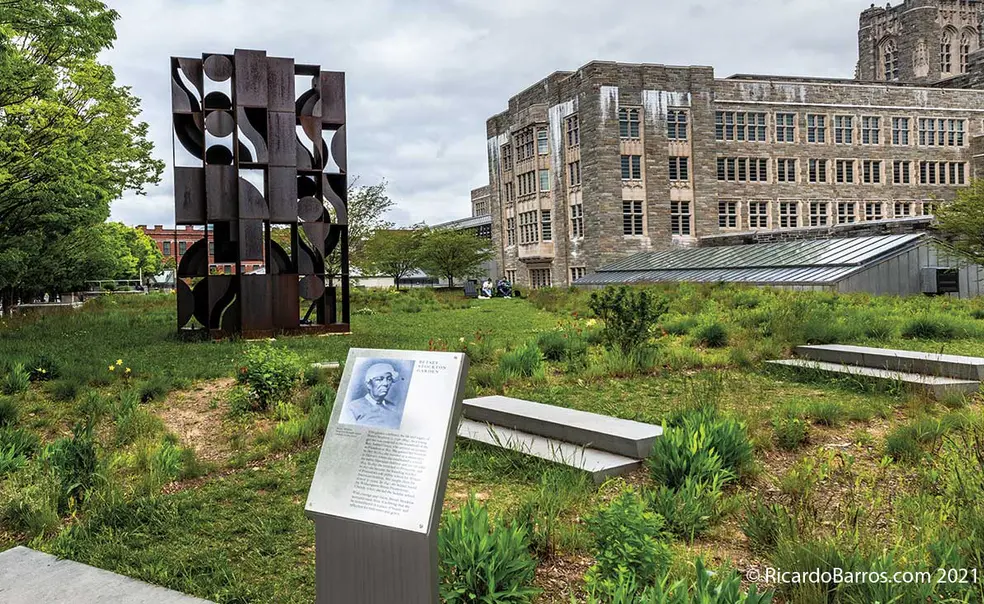Princeton Moves Ahead With Some Anti-Racism Initiatives
Several initiatives have taken shape while other key ideas remain in the planning stages
Last summer, faculty, students, and alumni wrote petitions and letters urging Princeton to take action to address systemic racism. The University responded with several changes, including renaming the public-affairs school and a residential college that had honored Woodrow Wilson 1879, and as the school year began, President Eisgruber ’83 outlined a set of wide-ranging goals. Ten months later, several initiatives have taken shape while other key ideas — such as a potential degree-granting program for adult students — remain in the planning stages.
An update, published in May and available on Princeton’s Racial Equity website (racialequity.princeton.edu), summarized more than a dozen projects, including recommendations for naming, renaming, and changing campus iconography, released by the Ad Hoc Committee on Principles to Govern Renaming and Changes to Campus Iconography in April; the addition of a professorship of Indigenous studies; a study of the Black student experience, led by Tennille Haynes, director of the Carl A. Fields Center for Equality and Cultural Understanding; the introduction of an Inclusive Leadership Learning Cohort devoted to anti-racism at the Graduate School; and an ongoing review exploring how to incorporate issues of diversity, equity, and inclusion in the graduate curriculum at the School of Public and International Affairs (SPIA). Provost Deborah Prentice and administrators at SPIA and the Graduate School were unavailable for interviews by press time.
University cabinet officers have developed racial-equity action plans, according to the May update. Michele Minter, vice provost for institutional equity and diversity, said in the update that the plans “recognize that addressing systemic racism requires a willingness to interrogate familiar patterns, policies, and practices.” A report on Princeton’s efforts to address racism is due out in the fall.
Advocacy for racial equity has continued among student groups, including Change Princeton Now, which grew out of Princeton Graduate Students United and Change WWS Now. Members drafted a series of letters (bit.ly/cpn-letters) making specific demands to 10 academic departments as well as the School of Engineering and Applied Science.
Astrophysics professor Jenny Greene, one of four co-authors of a widely discussed faculty petition published last July, said that faculty have been moving forward with anti-racism conversations within their departments or by working in small interdepartmental groups. For example, three departments — astrophysics, physics, and geosciences — collaborated to create the Future Faculty in the Physical Sciences Postdoctoral Fellowship, aiming to attract a diverse cohort of early-career scientists.
A report on Princeton’s efforts to address racism is due out in the fall.
Alumni advocates are aiming to influence the University’s efforts as well. Concerned Black Alumni of Princeton (CBAP) formed last summer when it gathered 800 signatures on a petition supporting the anti-racism proposals of students and faculty. Since then, CBAP has met weekly via Zoom. Yina Moore ’79, a former mayor of Princeton and a CBAP leader, said the group is advocating for an academic center at the University that would research ways to combat racism and have “a societal impact,” on campus and beyond. CBAP has drafted a proposal for the center (bit.ly/cbap-proposal), building on some of the ideas shared in last summer’s faculty petition.
Eric Plummer ’10, president of the Association of Black Princeton Alumni (ABPA), said that the University has been in active conversations with ABPA board members on a range of topics, including support for student organizations that serve diverse communities.
The national reckoning on race has boosted interest in ABPA programming, which has expanded in the last year, and Plummer hopes to sustain that momentum. “These conversations are poignant now,” he said. “But there should be a regular cadence by which we have these conversations going forward.”










No responses yet